Reportage
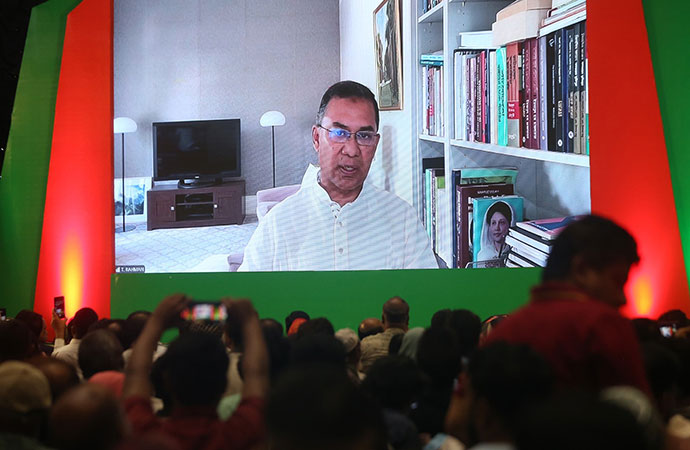
Tarique Rahman addresses a BNP programme virtually. (BNP Media Cell)
With another July having arrived, emotions have been running high, and there is a growing suspicion that the consensus required for the July Charter or Proclamation may not be achieved. This has exposed the growing disunity among the forces that drove last year's successful Uprising against the Awami League-led regime. In the face of their disagreements, the National Citizen Party (NCP) has said it will present its own July Proclamation and manifesto on August 3 at the Central Shaheed Minar in Dhaka.
This announcement was made by the party's convener, Nahid Islam, during a press conference held on Sunday at the NCP's temporary central office at Banglamotor, Dhaka. The event was organized to mark the anniversary of the July Uprising.
Nahid said: "Although the government promised to release the July proclamation, it has failed to do so. More than 30 working days have already passed since that promise. On August 3 last year, a one-point anti-fascist demand was announced at Shaheed Minar. Therefore, on this year's August 3, we will present the July declaration and manifesto with the participation of students and the general public, who led the uprising. After hearing the hopes and aspirations of people across the country during the July marches, we will present the declaration and manifesto in August."
In response to a question about whether the proclamation might lead to a conflict with the government, Nahid said: "The government said it would issue a July charter by August. Discussions are ongoing in the National Consensus Commission. We are participating in that process and hope the government will fulfil its promise by drafting a July charter that outlines a framework for fundamental reform of the state."
He added: "Despite repeated promises, the government has failed to deliver the July declaration. Since they have failed, we will no longer rely on them and instead present the declaration with the student-public alliance. This will be done on behalf of the student and the general population. Those who took part in the July Uprising will also be invited to share their views. If anyone disagrees, that is their own choice."
Announcing a countrywide campaign, Nahid said: "Throughout July, the NCP will conduct marches in all districts to hear from those who participated in the July uprising. This program is titled 'July March to Rebuild the Nation.' Starting on Tuesday to July 30, these marches will take place across the country."
Nahid's warning came, as the deliberations of the National Consensus Commission seemed to run into various stumbling blocks on the road to consensus, that is the benchmark set by the interim government for the July Charter, which is expected to provide the backbone of the 'new Bangladesh' that was pledged on on August 5, 2024. But even as the promise was made, it has become clear over the past 11 months that the different political forces' concept of the 'new Bangladesh' they wanted to build differed greatly.
The NCP for example, clearly values above all an element of protection for themselves, in the event of the political reality on the ground shifting in the future, to something more adversarial towards them. The BNP at times, seems to hardly care about anything outside a return to elected government. Jamaat on the other hand, appears comfortable to bide its time, along with the other Islamist parties. Other parties have been getting their say in the NCC's discussions - over 30 parties in all have participated in these discussions. Despite the disagreements that have come to the fore, the deliberations that have been broadcast live for the nation to see have at times given a parliamentary feel, and to the extent that they could portend the future, have been viewed positively by the general public.
Obstacles in the way
One of the most important issues on which the different political parties must find some common space. They have reached a consensus on reinstating a non-partisan caretaker government system to run the national election. However, they are yet to agree on who will serve as the chief adviser of this government or how the chief adviser will be appointed.
Several proposals on this matter emerged during discussions between the political parties and the National Consensus Commission. Further discussions will take place on these proposals in the coming week.
The constitution once had provisions for an election-time caretaker government, introduced through the 13th Amendment. Later, the caretaker system was abolished through the 15th Amendment by the Awami League government in 2011. In December of last year, the High Court declared two sections of the 15th Amendment Act, which abolished the caretaker government system, to be in conflict with the constitution and therefore void.
The BNP, Jamaat-e-Islami, five eminent citizens, and an individual have filed separate review petitions seeking reconsideration of an Appellate Division verdict that had upheld the abolition of the caretaker system. These petitions are awaiting hearings. Both the Constitution Reform Commission and the Election System Reform Commission have recommended reintroducing the interim or caretaker government system into the constitution.
In the first round of discussions with the National Consensus Commission, all parties agreed that there should be a caretaker government. However, except for one or two, most parties did not present a detailed framework of the caretaker government to the commission. Stakeholders have noted that it is essential to determine who will be the chief adviser and how they will be appointed. The chief adviser will nominate other members of the advisory council.
The Constitution Reform Commission had proposed that the interim government would remain in place from the end of the legislative term or dissolution of parliament until the swearing-in of the next elected government, with a maximum tenure of 90 days. The advisory council would consist of the chief adviser and up to 15 members. The chief adviser would be appointed by a National Constitutional Council comprising representatives from the executive, judiciary, and legislature.
However, the proposal to form the council had to be dropped following the second round of discussions of the Consensus Commission with the political parties - a good outcome of that round of talks. Instead, a proposal was made to form a committee for appointments to constitutional and statutory bodies. As a result, the framework for the caretaker government proposed by the Constitution Reform Commission was no longer on the discussion table.
In this week's discussions with the political parties, the framework that had been incorporated into the constitution through the 13th Amendment was presented. However, this was not in the proposal of the commission.
The Election System Reform Commission recommended a 20-member caretaker government. They suggested that if the recommendation of the Constitutional Council is not accepted, a high-level committee should be formed comprising representatives of political parties, experts, civil society, and other key stakeholders to develop a framework for the caretaker government. But this proposal has hardly been discussed.
On May 25, NCP presented a framework for an election-time caretaker government to the Consensus Commission. According to their proposal, at least three weeks before dissolving the lower house of parliament, an 11-member all-party committee would be formed.
The number of members from each parliamentary party in this committee would be determined proportionately to their share of votes. Any party must have secured at least 5 percent of the votes to be included in this committee.
Any member of either chamber of parliament (upper or lower house) would be eligible to be on this committee. The ruling party, the main opposition, and other opposition parties would each propose three non-partisan candidates for the position of chief adviser, making a total of nine nominees. The names proposed by each party would have to be made public.
These proposed names would be sent to the all-party parliamentary committee to finalise one name. The committee would confirm the chief adviser by an 8-3 vote.
If the committee fails to agree on a suitable candidate from the proposed names, the upper house would select the chief adviser through 'ranked choice voting'.
In the second round of discussions with the Consensus Commission, this NCP proposal was formally presented. Some parties have expressed moderate support for this proposal. For example, in yesterday's discussion, Bangladesh JASAD's Mushtaq Hossain said that NCP's proposal could be a reasonable basis for agreement.
Additionally, one proposal that emerged during the first round of discussions and another from civil society were discussed. Some other issues also came up during the discussions. The conversation will again pick up from there when it returns next week.
Proportional Representation
Recently at a rally in Dhaka organized by Islami Andolan Bangladesh, parties such as Bangladesh Jamaat-e-Islami, NCP and Gano Adhikar Parishad expressed strong support for proportional representation in both houses of what would be a bicameral parliament. According to them, PR is essential for ensuring an accurate reflection of votes and fair representation of all parties in parliament.
But the BNP has been opposing it for either house from the start. Speaking virtually at a rally in Dhaka last Tuesday, BNP Acting Chairman Tarique Rahman said: "Proportional representation could lead to a fragmented society and unstable governments. We must consider whether this system is inadvertently paving the way for the return of discredited and fugitive fascist forces in our politics."
Experts, while waxing lyrical about the benefits of PR and even its superiority as a voting system, think neither the government, nor the political parties and voters are prepared for its introduction in the next polls.
They say that while the PR system offers many potential benefits, its feasibility depends on strong political will, public support and the readiness of both political actors and the electorate to transition from the current first-past-the-post (FPTP) system. One of the principal gripes about this system is that it awards potentially 100% of the representation to what might be just a 50.1% majority.
The experts suggest that the PR system could be incorporated into the constitution as a directive for future implementation, as it may help create a more vibrant parliament with diverse viewpoints, reduce the influence of money and muscle in elections, and prevent autocracy and fascism.
PR is an electoral system where the distribution of seats aligns with the proportion of total votes each party receives. For instance, if a party gets 40 percent of the total votes, the PR system would allocate 40 percent of the seats for it in parliament.
"PR is a good election system. I support it and I have even written a book on why it's necessary for Bangladesh. However, we won't be able to implement it in the next national election because we're not ready. Our government, political parties and voters are unprepared for it," said renowned election expert Dr Tofail Ahmed.
He noted that around 70 to 80 countries currently practise some form of proportional representation system worldwide.
"It's encouraging that political parties are advocating for the introduction of the system. However, our voters lack knowledge about it. We must first educate them, and this process will take time to ensure people understand it," he said.
Besides, the election expert said the PR system encompasses various forms and definitions, reflecting different approaches to achieving proportionality in electoral outcomes (see below). "We need a political consensus on which one we will adopt."
He said that a significant barrier to implementing this system is that major parties may not accept it, as it could disrupt their dominant power and make it more difficult for them to secure a majority.
"The BNP and Awami League are our two main parties, sharing the support of the majority of voters in the country. The BNP is opposing this system, and we aren't hearing the views from the Awami League due to the current political situation. I believe they may also not support it. If Jamaat had a larger voter base, they would likely not back it either," Dr Ahmed said.
He stated that smaller parties are in favour of the PR system, as it would provide them with the opportunity to secure seats that they might not obtain under the First-Past-The-Post system, which is said to encourage a winner-takes-all form of politics. That then, explains the current alignment we're witnessing for and against the system.
But moving to PR is hardly a straightforward affair.
"Implementation of this system is very challenging. We should give the political parties time to understand the PR process and its benefits. It won't be wise for the interim government to impose it without political consensus," the academic observed.
However, introducing a proportional representation-based upper house in Bangladesh's parliamentary system, would be an important step towards enhancing accountability, ensuring better representation, and curbing the 'winner-takes-all' nature of current governance.
On January 15, the Constitution Reform Commission and the Electoral Reform Commission proposed a bicameral legislature with a 400-member lower house and a 105-member upper house.
Amid opposition from most of the political parties, the National Consensus Commission revised the reform commission's proposal and recommended a 100-member upper house along with the previously stipulated lower house.
During the NCC-hosted second-round dialogue, which began on June 2, a first-past-the-post electoral system or direct election was proposed for the 300 seats of the lower house, while proportional representation on the basis of vote casted was proposed for the upper house.
Allocating upper house seats based on national vote share in a second ballot would allow minority parties a voice in parliament even if they fail to win seats in the lower house. The upper house's functions should be carefully designed so as not to obstruct the routine work of the executive body. Previous incumbents ignored dissenting voices and the oppositions resorted to destructive protests. A proportionately represented upper house could be a first step towards a more inclusive and stable political system.






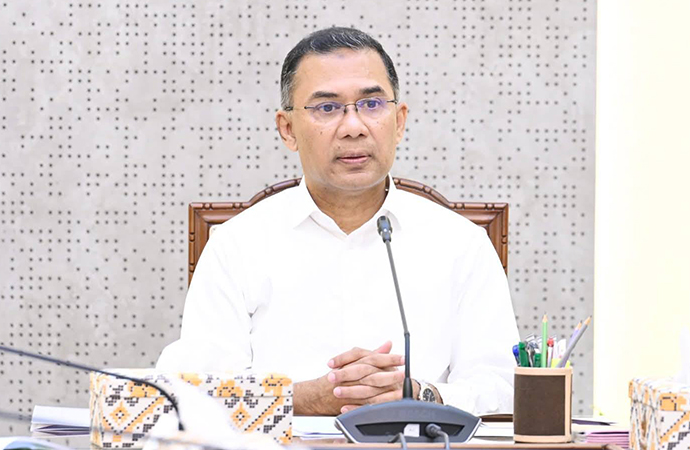
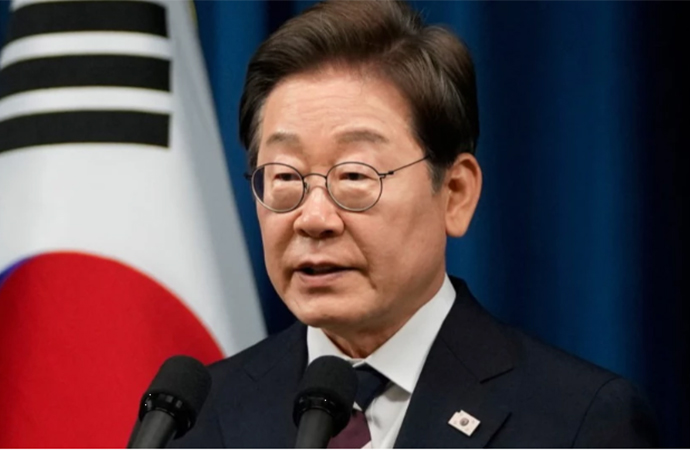
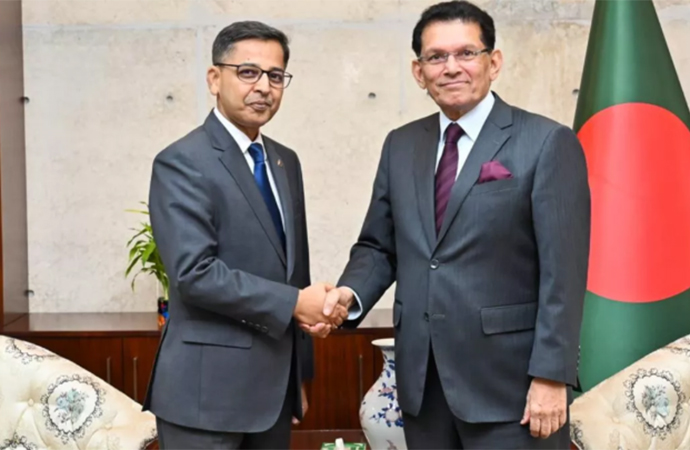
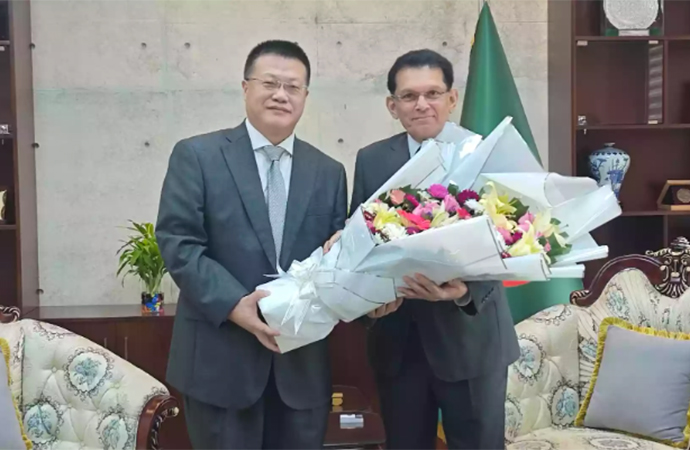
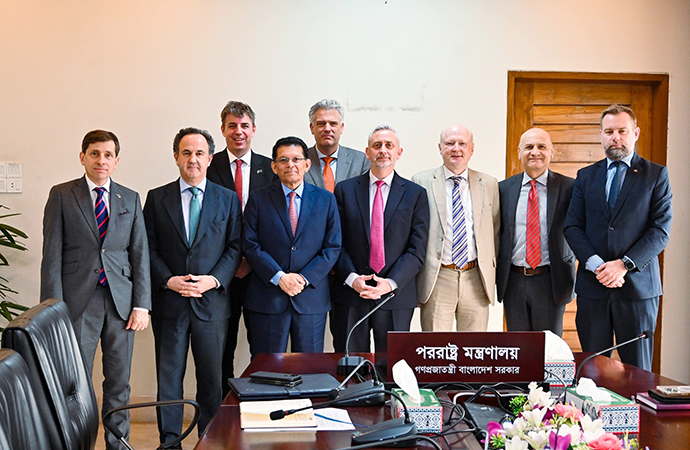
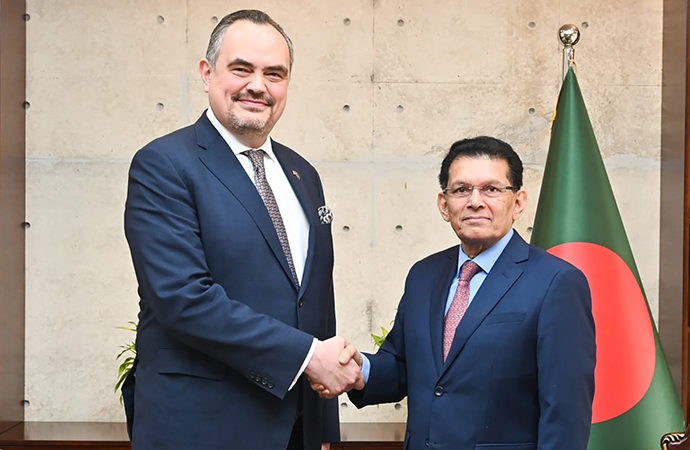



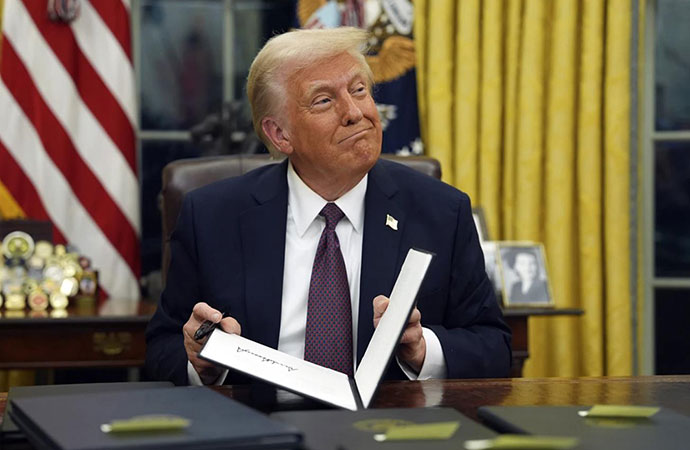



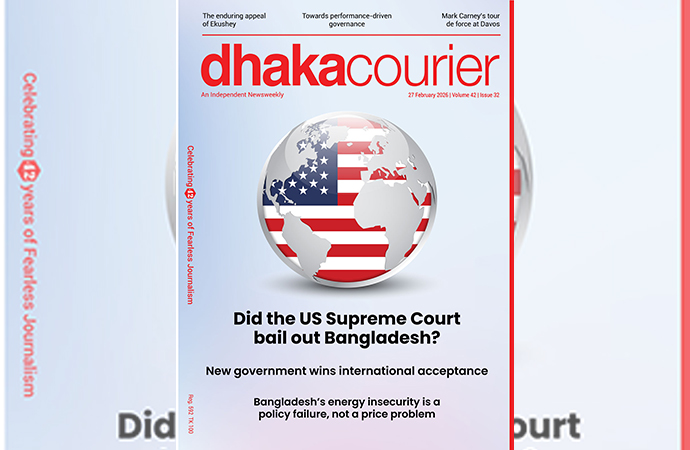





Leave a Comment
Recent Posts
Bangladesh’s first drought-res ...
In a groundbreaking development for Bangladesh’s agriculture, Ga ...
US and Iran hold another round ...
Iran and the United States were holding another round of indirect talk ...
An early hiccup for the new government?
Japan invites PM Tarique, eyes cooperation with Bang ..
Bangladesh to achieve sustained growth, prosperity u ..
Dhaka indicates ‘forward looking, balanced partnersh ..